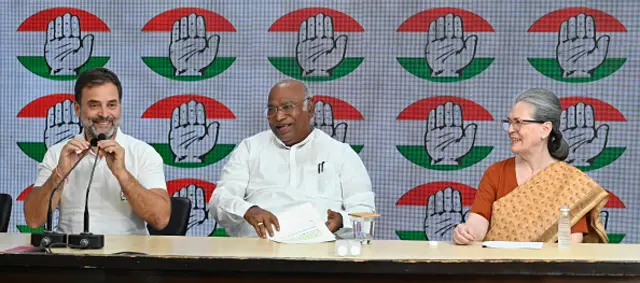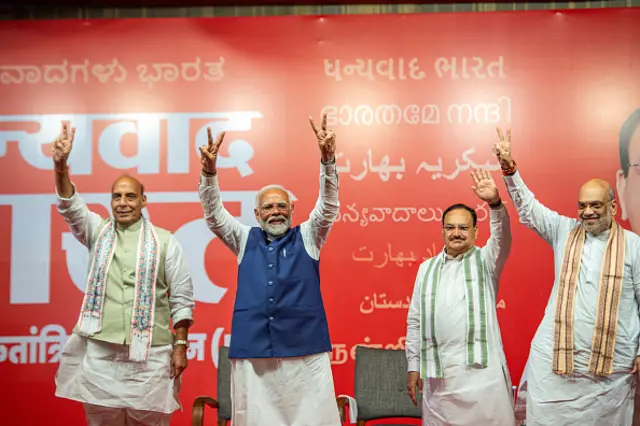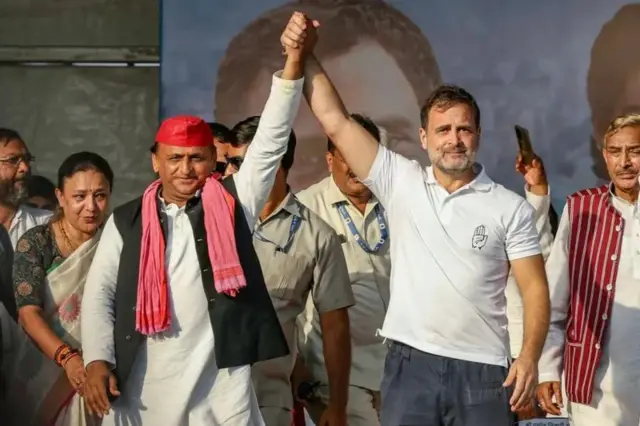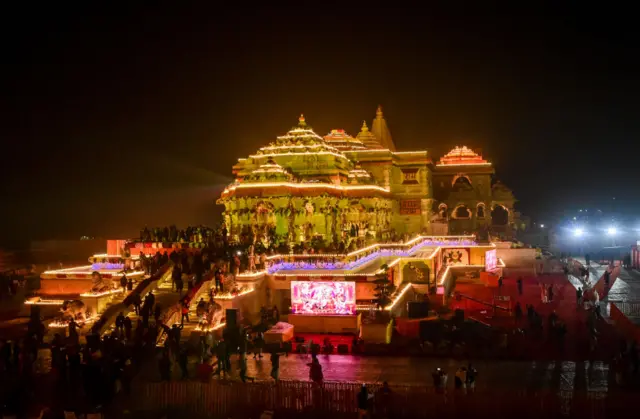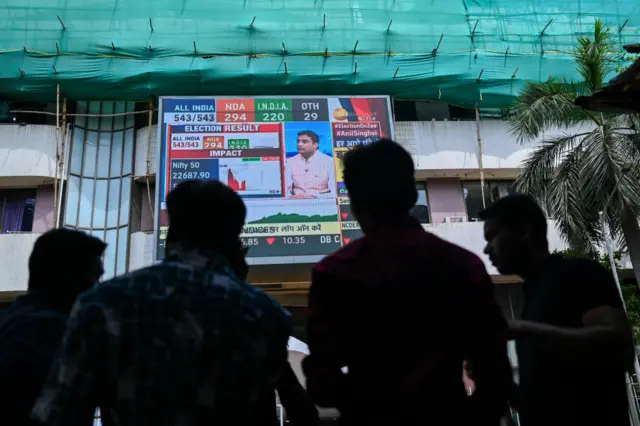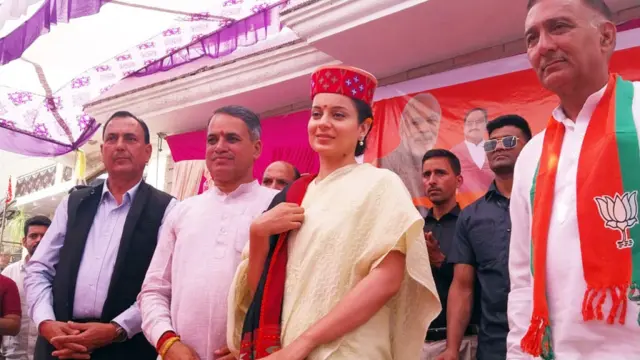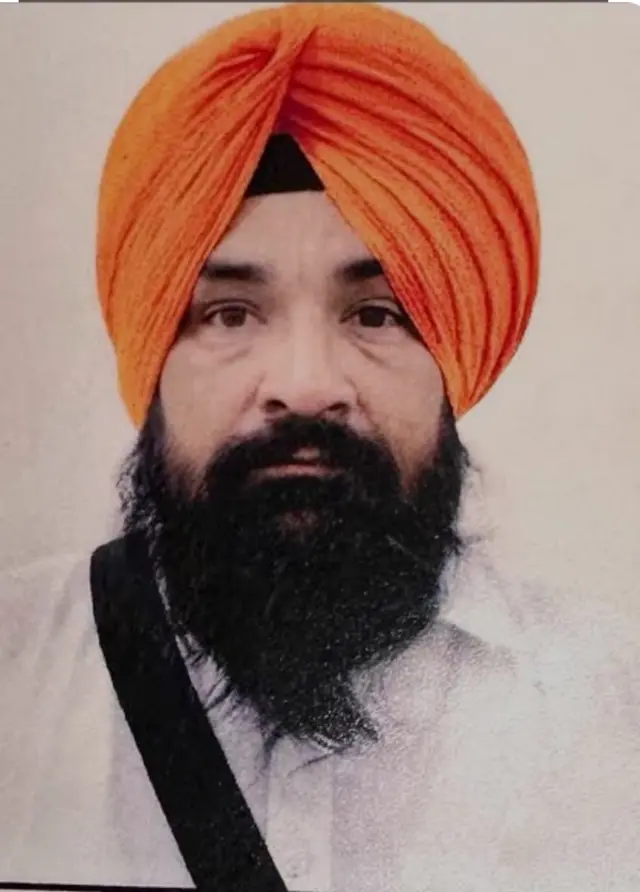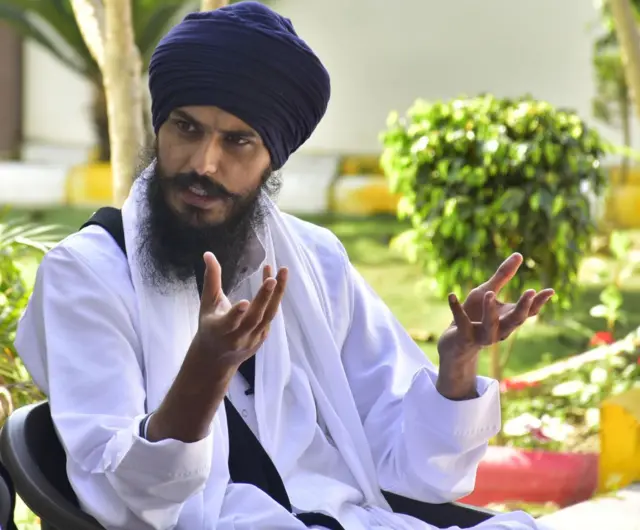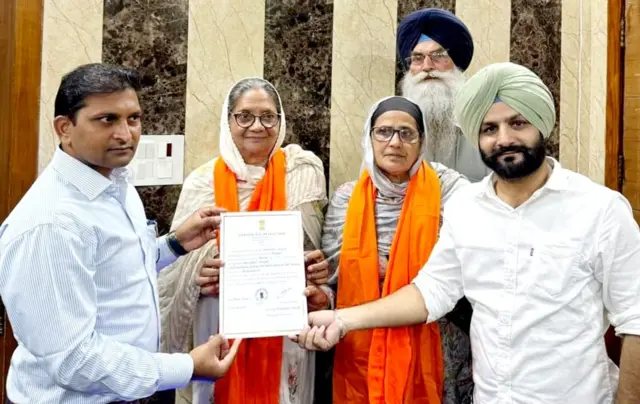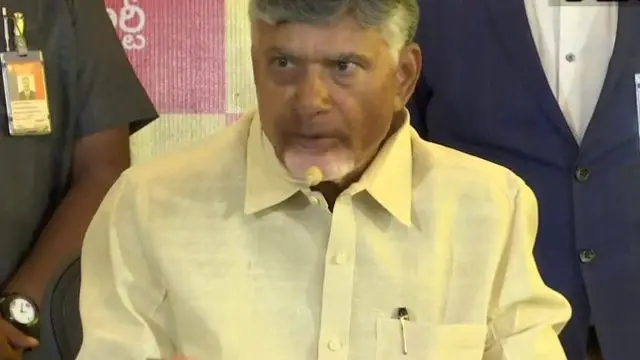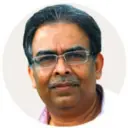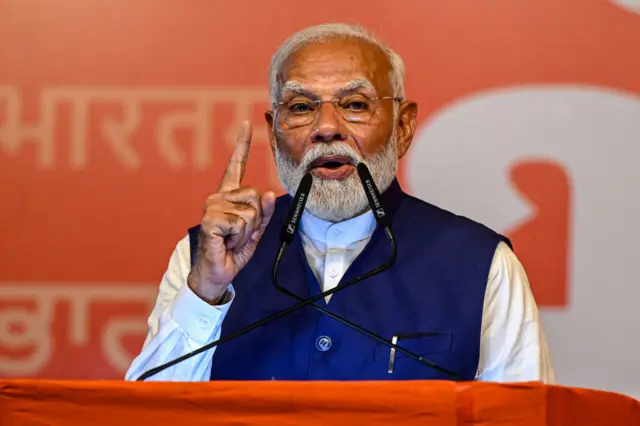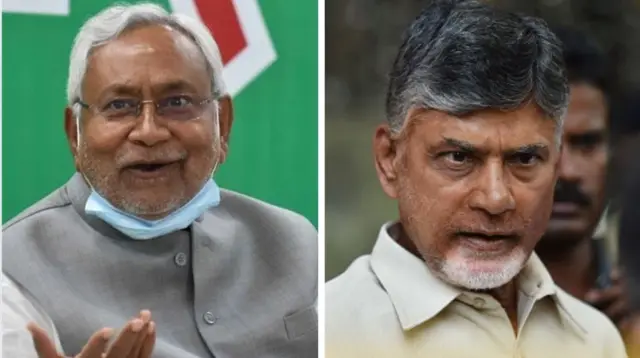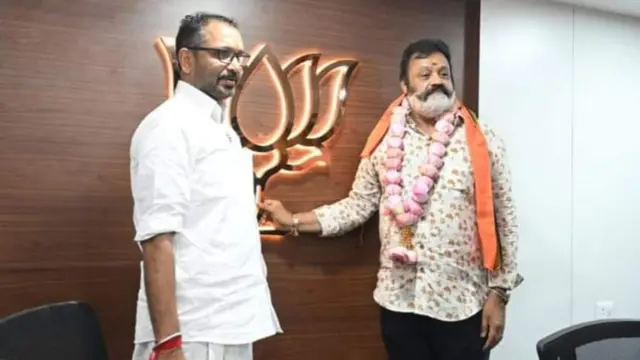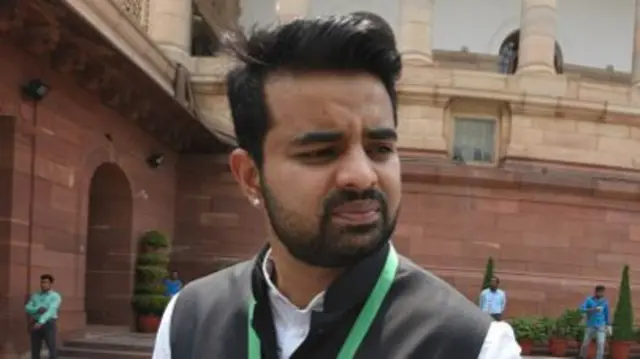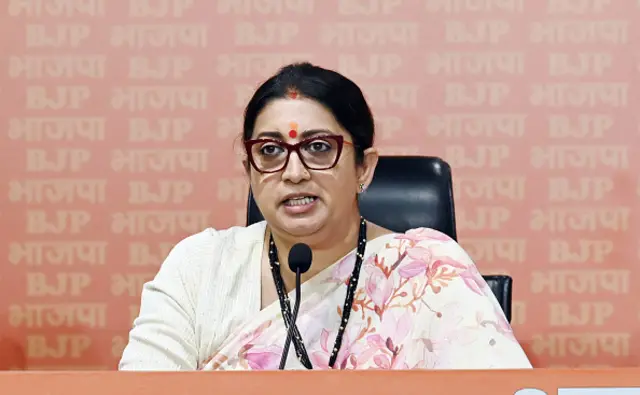'As a first-time voter, I picked BJP but it lost'published at 10:49 BST 5 June 2024
Yesterday, voters made their voice heard through the results. Today, let's see how some of them are reacting to the developments of yesterday.
Aditya Krishna is a 20-year-old first-time voter from Uttar Pradesh, a Hindi heartland state that has the potential to sway national politics as it sends 80 MPs to parliament.
The state has been a stronghold of the BJP in the past two elections - in 2019, it won 62 out of 80 seats in 2019 and 71 in 2014. It has won only 33 this time.
Mr Krishna says that he is unhappy that the BJP, which he voted for, did not perform well in the state. "The results weren't as I had expected," he says.
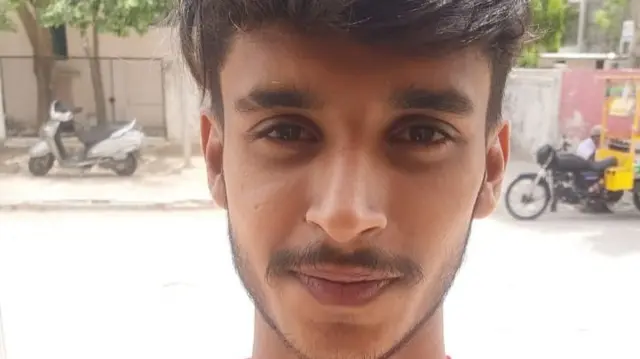
Aditya Krishna voted for the first time in this election
But he also says that whichever party forms the government, they should think about creating jobs for the youth.
"Only then will we be able to support our families," he says.
He also wants the next government to reduce the cost of education and healthcare keeping the poor in mind.
"The country had become a lot safer under the BJP's rule, and that's a good thing," he adds.
